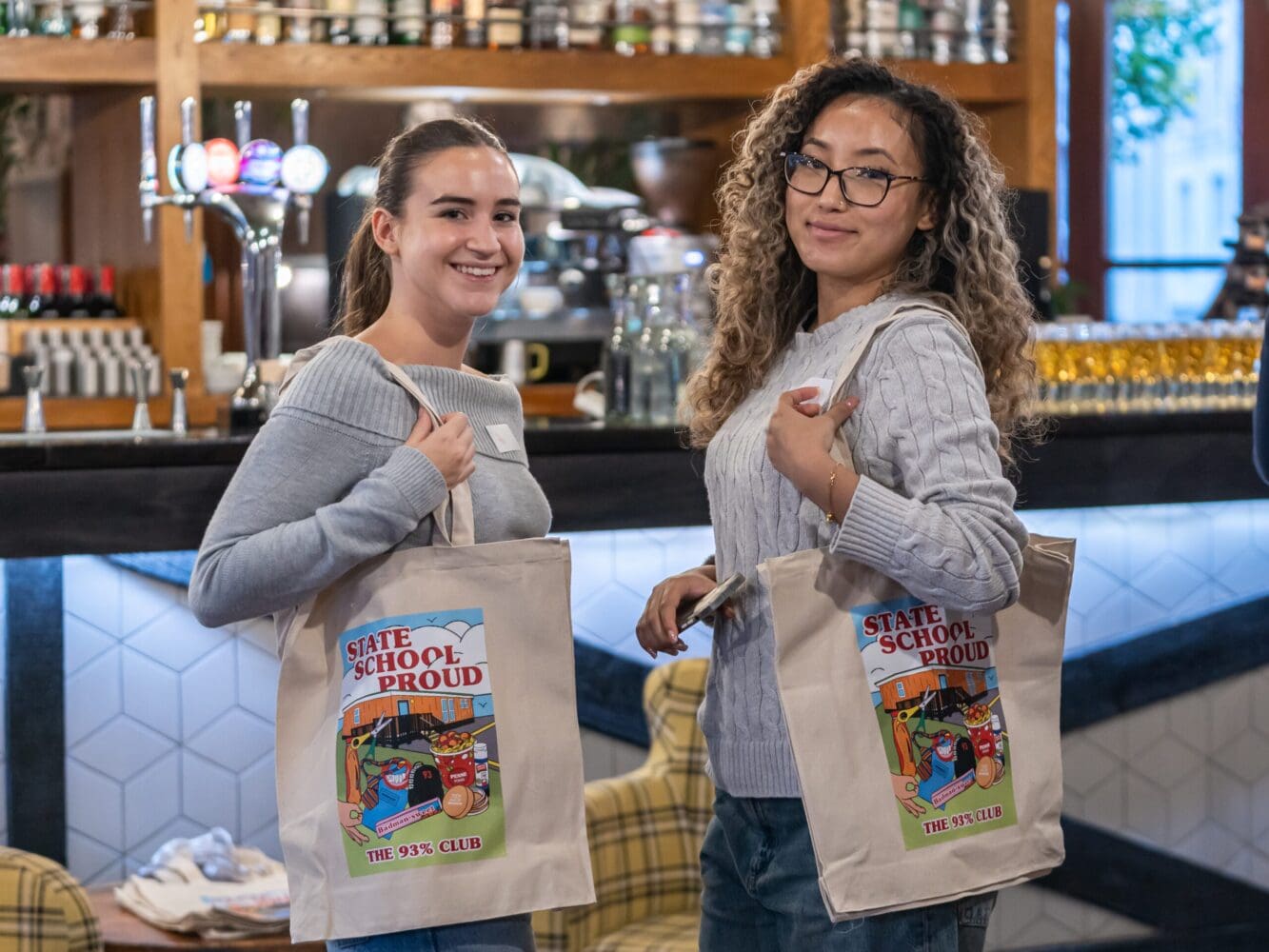Are you part of the 93% club?
If you went to university in the UK and you come from a state school or first generation to university background, chances are that you are eligible to be part of the UK’s least exclusive members club.
What is it all about?
The movement, trail blazed by Sophie Pender, was founded to bring representation and community to the 93% of students starting university from state schools. The club’s mission is to bring together like-minded individuals across the country to break down the structural barriers to social mobility and build a future that is fairer and more representative for the next generation. Since its creation in Bristol in 2016, the club has flourished in growth and success. By 2020, despite the turbulent times of the pandemic, the 93% club was more prosperous than ever, reaching over 10,000 students at 45 universities.
With national recognition, the club has gone from strength to strength and this year, took to the road to educate, empower and recruit more students to feel heard, represented and involved in a community.
I was lucky enough to attend the 93% club State School Roadshow in the city where it all began, Bristol, on Tuesday.
As soon as the doors opened, students and professionals alike were pouring in. The complementary fizz on arrival was apt for the bubbly atmosphere of the room, filled with enthusiastic and inquisitive young people.
Speaking to a variety of students and industry professionals, I discovered that one thing united everyone in the room. A desire for social mobility and access to equal opportunities for everyone, no matter their educational or demographic background.
The State School Roadshow is a series of networking events across October and November which is spanning the North of England, the Midlands and the South West, in consideration of recruitment season.
The show exemplified the 93%’s core values and message. The class inequality that exists in Britain needs to be dismantled and replaced by inspiring every and any student and individual to fight the repressive boundaries imposed by class inequality. The Bristol event was a fantastic opportunity for students of the University of Bristol to enhance and expand their personal and professional networks and recognise the employability skills they already have instilled in them, despite the advantageous and exclusive opportunities their private school counterparts may have had access to.
A motivating speech by a state-educated University of Bristol employment representative (regrettably I can’t remember her name as I was entangled in a discussion about the 93% club’s captivating Radio 4 Show when she introduced herself) highlighted the importance of embracing skill sets developed from part-time employment, in conjunction with your studies and ‘real world’ experiences which set you apart from students who may have never had to support themselves through part-time work and therefore lack invaluable workplace experience. Moreover, you are provided with the ability to budget, manage your time and blessed with interpersonal and transferable skills which are the traits that employers are looking for in prospective employees.
I also had the opportunity to speak to Fin Wright, Marketing, Brand and Communications Director at the 93% club, who answered some questions I asked about what is coming up for the burgeoning club.
What is on the horizon for the 93% club?
“We’re aware that our club is primarily student-based and represented, but as we’re rapidly growing we’ve asked ourselves what happens when these students leave and how can we carry on the club in a professional capacity?” Fin commented on the value of the student network on campus but explained how the club is seeking to expand and form a more ‘professional’ version for once students have left university. ‘There are already 600 people on our waiting list”, Fin told me as I asked about the interest in the club which has grown massively over the last three years. “Considering the cycle of students and professionals, we want to develop an “old boys’ type network”, which really celebrates the ethos of the 93% club.
What will success look like in a year’s time?
“We hope to build a really strong mentor system” Fin told me, “using traditional referral systems for state educated students” will boost their employability and provide them with the opportunities previously only available to students coming from privileged backgrounds and access to broader networks.
What’s the most surprising result the 93% club has produced so far?
“I think the strangest thing for us has been that we’ve actually been able to be a powerful force for changing the narrative of state education”, understandably, you can tell how pleased, proud and passionate Fin is of the club’s achievements. He noted how the members of the club have played a significant role in “reversing the narrative to one which empowers state-educated people”. Rather than comparing themselves to those who have come from private education, more privilege and opportunities, the club places a positive focus on the power state-educated individuals hold. Fin also mentioned how surprised but pleased the club is about the close connection they’ve built with upReach, a social mobility charity which strives to establish environments that enable undergraduates from underprivileged backgrounds to secure and sustain top graduate positions.
Finally, do you think the 93% club will become a fully fledged charity?
“We actually are already” Fin beams, however at the moment they are navigating questions around how their philosophy has changed to shift focus more on ambition. “We aren’t a valedictorian charity”, rather their benevolence comes from a sense of community and representation.
The club accelerated from just two to 48 employees in 2020, proving even a global pandemic cannot stop their success. As the charity grows even more expeditiously, it is exciting and inspiring to think about what the future holds for the 93% club, as it builds more traction and sparks the boundless imagination of the next generation of determined and inspired individuals.







